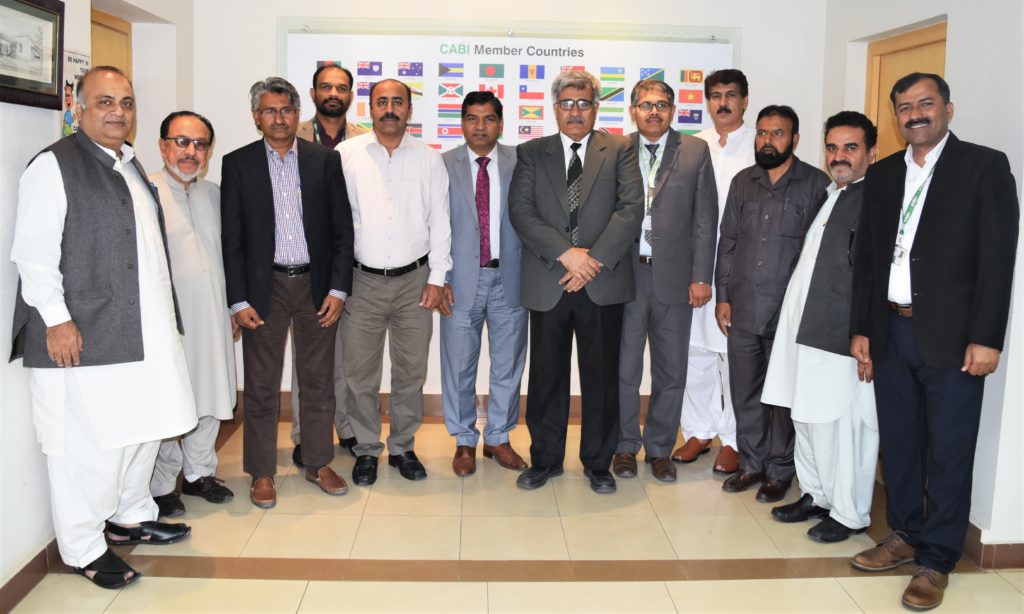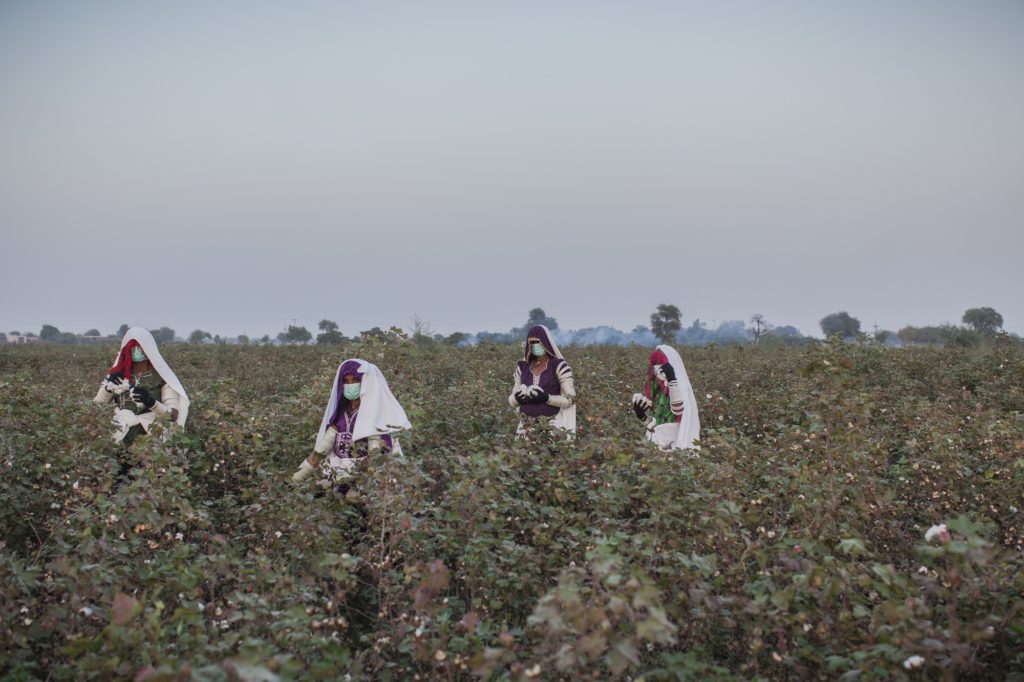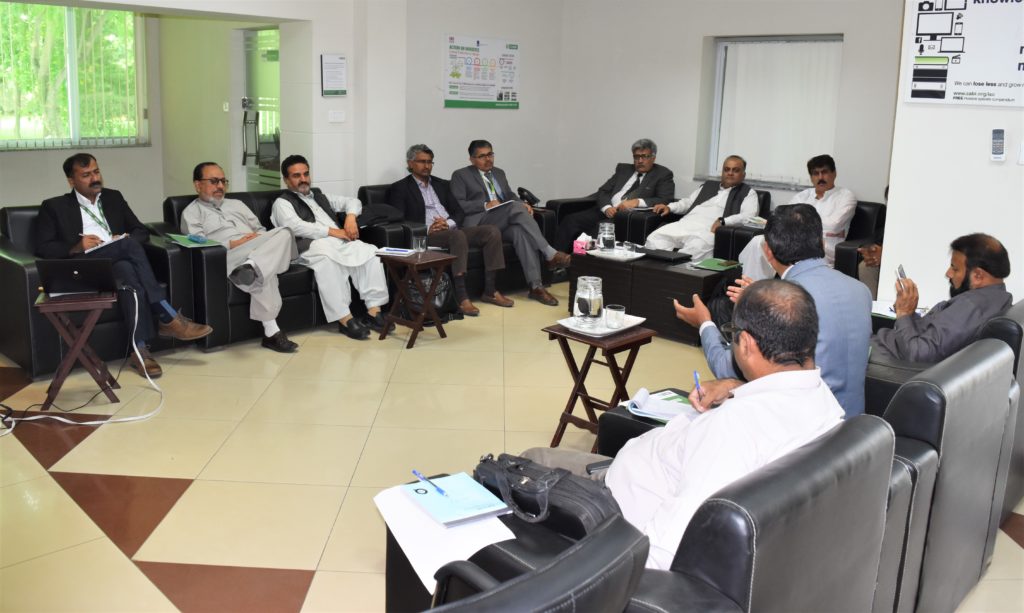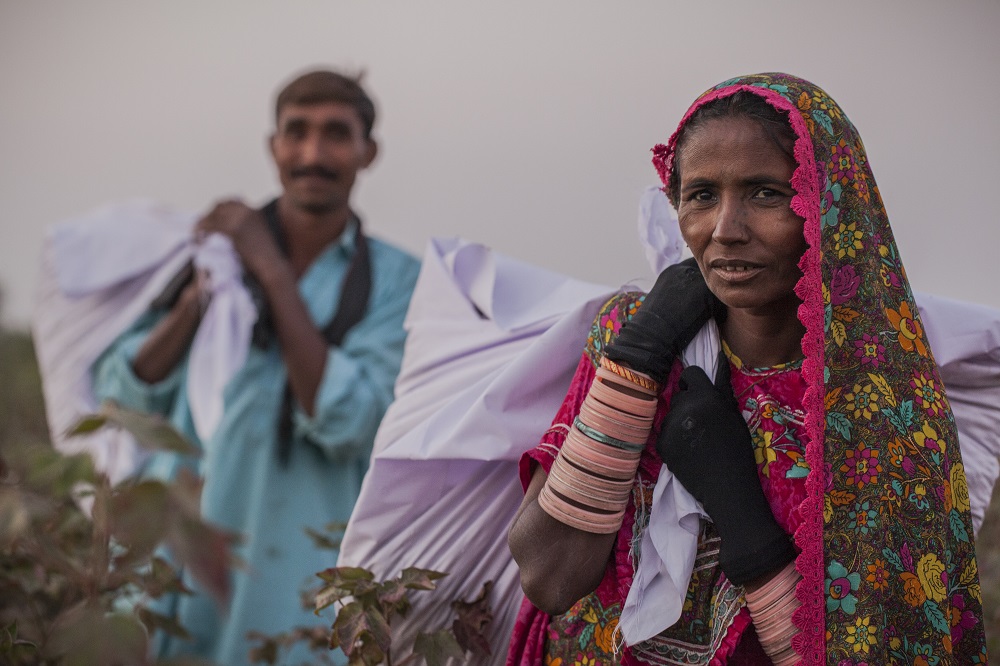
Around 25 million agricultural workers in developing countries suffer from pesticide poisoning each year – including a significant number of women, says the World Health Organization (WHO). The presence of pesticides in food items and their accumulation in tissues has direct toxic effects on humans and other non-target organisms. There are serious ecological and environmental problems with over reliance on pesticides. The continued and overuse of chemicals have also resulted in more serious problems by contaminating water supplies and degrading the cropland soils.
Women are an important contributor in the cotton sector. There are certain tasks in cotton farming which are exclusively performed by women. These tasks include sowing, weeding, picking etc. Due to having direct contact with plants they are at risk of being affected by chemicals. The chemicals are applied due to insects getting resistant to the GMO cotton varieties day by day and the situation is getting worse.
The cultivation of GMO cotton seeds is widespread in Pakistan due to a number of reasons, particularly the lack of organic cotton policy, the unavailability of non-GMO cotton seed, no (or very weak) linkage(s) with input suppliers and supply chain actors, and a lack of farmers interest in organic cotton. Furthermore, the availability of the non-GM seed on time and in required quantity for growing organic cotton has remained a key factor to demotivate farmers.

To try and help the situation, CABI has launched the Cotton Advocacy for Policy and Seed (CAPAS) Project in Pakistan with funding of C&A Foundation. The aim is to create a conducive ecosystem for organic agriculture policy and contribute to the long term availability of non-GM seed and organic inputs for organic farmers with a self-sustaining approach.
A project kick start meeting was held at CABI Office-Rawalpindi. All relevant stakeholders were represented including Dr Khalid Abdullah, Cotton Commissioner, Ministry of National Food Security & Research (MNFS&R), Dr Zahid Mahmood, Director, Central Cotton Research Institute-Multan, Dr Sikander Khan Tanveer, Principle Scientific Officer, National Agriculture Research Centre (NARC), Dr Abdul Hanan, Director General, Balochistan Agricultural Research & Development Center (BARDC), Mr Masood Qamar Qureshi, Director General, Federal Seed Certification and Registration Department (FSC&RD), Mr Syed Habibullah Shah, Focal Person Organic Cotton, Agriculture Extension Department-Balochistan, Mr Ghulam Abbas, Director – Oil Seed, Agriculture Extension Department-Balochistan, Mr Hafiz Muhammad Bux, Project Manager, WWF, Mr Makhdoom Mashood Ahmed, Country Advisor, C&A Foundation, Mr Abdul Rehman, Deputy Director Programme, CABI, Mr Irshad Ali, Regional M&E Coordinator-Asia, CABI, and Mr Ashfaque Ahmed: Project Manager, CABI.

The project will be implemented in close collaboration with the Government departments (federal & provincial), input suppliers (private sector), seed enterprises (both public and private) and farmer associations, This project will initiate technical and policy interventions for the local availability of organic cotton seed and other non-chemical inputs.
The initiative will promote the availability of organic cotton seed – ultimately contributing to a transition to organic cotton that will minimize the harmful impacts of chemicals and bring health benefits for the women and men involved in cotton farming.
Under this project, farmers will be trained to multiply the non-GMO seed on their farms. The organic seed product(s) will be utilized at their own farm and will be sold to other farmers in Balochistan and Pakistan (mainly Sindh and Punjab). Once the Balochistan farmers are able to produce the non-GMO seed in bulk quantity, they will not only use the for their cultivation of organic cotton but will also supply the non-GMO cotton seeds to the cotton growing hot spots in Sindh and Balochistan. The project plans to link different input suppliers and seed marketing to the trained farmers of Balochistan.

This will help organic cotton growers of Balochistan to become non-GM seed producers for supplying seeds to other provinces where growing organic seed would be difficult. The proposed grant will set up a foundation for ensuring the availability of good quality non-GM seed initially for Balochistan province and then for the rest of Pakistan. It will identify good seed varieties, set up conducive policy ecosystem to support non-GM seed availability and engage the right stakeholders.
CABI will work with relevant parliamentary committees, Government offices and farmer bodies for policy advocacy to get premiums and subsidies for the organic cotton farmers of Balochistan. A number of lobbying meetings will be conducted with policy makers for the availability of the organic fertilizer and biopesticides in the province and for promotion of the biological control programme in the province.
CABI understands that macro level (provincial, national and regional) policy influence requires both technical as well as representative stewardship. Consequently, initial discussions have been held with IFOAM Organics International for technical collaboration on taking forward the policy work of this project.
